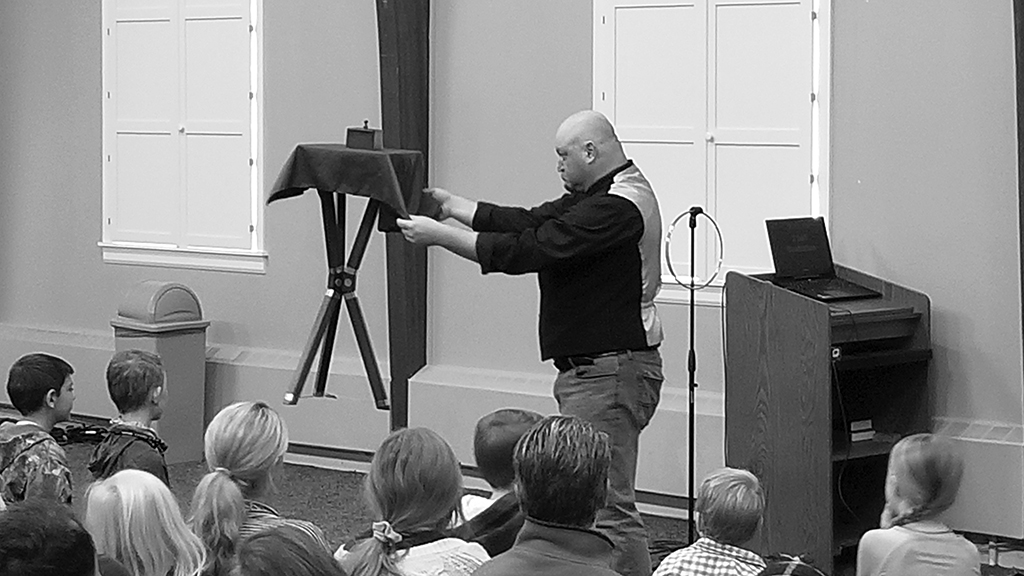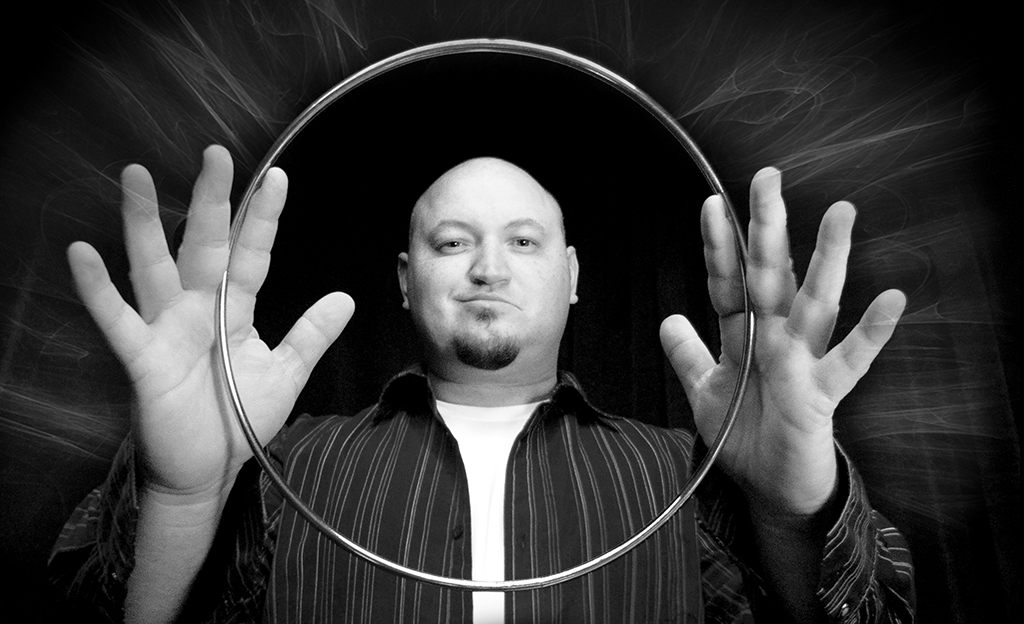By Adrian VanVactor,
FaithSearch Evangelist
I stood there, at just twenty years of age, staring out into a crowd of 850 people, the majority being members of a local church. Of unchurched visitors present, 56 made a commitment to follow Jesus as Lord and Savior that evening. The event affirmed my vocation, my calling into a life of evangelism. Just months before I had won the international competition and received an award for “The Most Promising Magician of the Future.” Therein lies the problem: “magician.” Can God use a magician?

In part 1, I discussed how the church became “all things” (1 Corinthians 9:22) to all people for a more effective witness. When I first wrestled with my love for the art of illusion and my newfound faith, I quickly learned from the Bible how important it is to understand that words have both meaning and context.
The Bible clearly condemns the occult practices of attempting to communicate with the dead, sacrificing children, consulting spirits, or making predictions in the name of false gods (cf Deuteronomy 18:10-14). Yet, it seemed silent on the modern role as an entertainer. The New American Standard Bible uses the title “magician” sixteen times in the Old Tetament, mostly of the Egyptian or Babylonian priest-like class who were considered experts in interpreting dreams and extracting meaning from events and the stars. While some did practice the occult, they were also well acquainted with herbs and healing ailments and could read and write. In fact, the root word means to write or engrave. The prophet Daniel was called the chief of the magicians (Daniel 4:9). In that sense, I’m in good company.
In the New Testament (NASB) the English word “magician” is used twice. The Greek word is also translated as “magi” for the wisemen who visited the Christ child in Matthew 2.

According to the online Oxford English US dictionary, there are two different meanings or uses for the noun “magician.” First, “A person with magical powers.” Second, “A person who performs magic tricks for entertainment.” The first meaning is typically condemned in the Bible. In westernized countries, the second definition is usually intended. I describe what I do as the art of illusion:
I am a Gospel illusionist. In my program I never portray myself as being able to interpret dreams, consult astrology charts, or commune with the spirit world. In fact, I typically give a detailed disclaimer that I’m using natural means to create a supernatural “effect” or illusion. I often use the movie Superman as an example. We are not expected to believe in a real Superman; the character does not exist. It is merely an actor playing the role of Superman. So how do they create the “illusion” of this actor’s invincibility and flying skills? Movie Magic! Special effects. Similarly, in my program I’m merely an actor playing the role of a fictitious character called “magician” and instead of creating my special effects on screen, I create them on stage.
In 2 Corinthians 10:5, the Apostle Paul exclaims, “We demolish arguments and every pretension that sets itself up against the knowledge of God, and we take captive every thought to make it obedient to Christ.” This is the defining passage of what I do as an illusionist and why having this skillset is so valuable. The world is filled with false claims of the supernatural. Throughout the fifty countries I have visited during my fifty-nine international tours, I’m amazed how often a person’s faith is tethered to a false supernatural worldview. The only way to unshackle these beliefs is by demonstrating and debunking the “effects” naturally in a way that only a professional magician could.
In South Africa, for example, my program was designed to expose the local—and much feared—witchdoctors. I had countless students approach me afterwards in tears exclaiming how free they felt to no longer have to live in fear.
The world is filled with false claims of the supernatural. I destroy these arguments by way of natural demonstration. During my debunking speech and presentation of modern deceivers and false claims of the supernatural, I make the argument for the uniqueness of Christ and why my audiences can legitimately put their faith in Him. In part 3 of my series, I will share details of this effective apologetic method.


